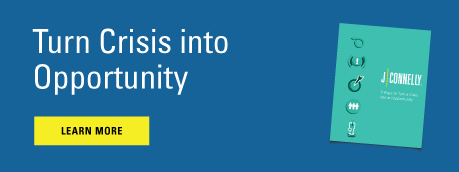
To borrow a line from Paddy Chayefsky’s brilliant screenplay for Network, people are “mad as hell and not going to take it anymore.” It’s a sentiment that brand stewards and marketers ignore at their own peril.
In the last few years the widespread activism that was a hallmark of the 1960s has coming roaring back with a vengeance. We've seen it in many places, from Occupy Wall Street to Black Lives Matter to the passionate crowds at election rallies for Donald Trump or Bernie Sanders. And it’s not just in the streets or in the voting booth that people are looking to be heard. A growing number of Americans are also looking to make the world a better place by putting their money where their mouth is when it comes to investing. This phenomenon goes by several names including impact investing, socially or sustainable investing (SRI) or ESG investing (from attention to environmental, social and corporate governance issues and the currently favored nomenclature), but whatever the description it boils down to people making investments that reflect their own personal values.
While it may have started as a fringe movement in the financial world, ESG has been become increasingly mainstream in recent years, to a large part driven by two demographic groups increasingly flexing their financial muscles—Millennials and women. According to a report from the Forum for Responsible and Sustainable Investment (US SIF Foundation), US institutional assets invested in ESG strategies reached $8.72 trillion in 2016, up 32.7 percent from 2014. And as more and more mutual fund companies begin putting together ESG portfolios those figures are likely to grow even further.
What was originally called the SRI movement traces its roots back to 1971 when a couple of United Methodist ministers launched the Pax World Balanced Fund, the first mutual fund based on sustainable investing principles. In its early years much of the SRI movement was faith-based and focused mostly on divestiture or avoidance of stock in companies in “sin” industries (e.g. firearms, gambling, and tobacco) or with unsavory environmental and labor practices.
As the movement evolved so did its approach. Relying strictly on avoidance and negative screening might give the investor a smug sense of moral superiority, but from a pragmatic viewpoint, it doesn’t change anything. The opinions of non-smokers and people opposed to firearms don’t carry much weight with manufacturers of those products because they’re not customers anyway. Shareholders who hold an ownership stake are another story altogether and that’s why we’ve seen a shift in tactics from divestiture to active engagement on the part of mutual fund companies.
And it’s working. In a recent interview Janet Brown, president of FundX Investment Group outlined some high profile victories by activist mutual fund companies. They include engagement by Domini Impact Investments, a pioneer in SRI, with Target that got the retailer to reduce the use of toxic PVC plastics in children’s products. And when Target took the lead, they were followed by Walmart, Sears and others. Another example is Trillium Asset Management which worked with Home Depot to reduce its sale of old-growth lumber. The home improvement chain is now the largest retailer of sustainable wood certified by the Forest Stewardship Council.
According to the US SIF Foundation sustainable investors have made a difference by using active share ownership and engagement to encourage more responsible and forward-thinking corporate practices. Engaging in constructive dialog and numerous shareholder resolutions—investors filed more than 400 proposals just on environmental and social issues in 2015 alone—has helped persuade numerous publicly held companies to: improve climate risk disclosure, set greenhouse gas emission reduction goals, adopt goals to reduce energy use or to use renewable energy; implement sustainable forestry practices; address poor labor and human rights conditions in their global supply chains; pledge not to discriminate against employees on the basis of their sexual orientation; disclose health, safety and environmental risks associated with hydraulic fracturing and much more.
“In 1985, 80% of a company’s stock performance was based on financial metrics. Today, 80% of a company’s stock performance is based on mostly brand identity and customer loyalty,” warned Jeffrey Gitterman of Gitterman Wealth Management. “ESG is a trend, not a fad. Today, information is immediate and affects stock price immediately, for example, compare when the Exxon Valdez happened, there was no impact on stock price, to today a rabbit dying on [United Airlines], the stock price was affected. It’s a whole new world. How we measure performance, how we measure companies, who we can relate to, is completely turned on its head.”
How people look at the brands they buy from and do business with has shifted dramatically and it’s incumbent on everyone involved from the boardroom to the marketing team to the sales and customer service reps to make sure they and the companies they work for are committed to good behavior and sustainable practices. It’s not only the right thing to do, it’s also good business.





Let’s Connect
Ready to build, grow, manage and protect your brand? Complete the form below to discuss how we can help.